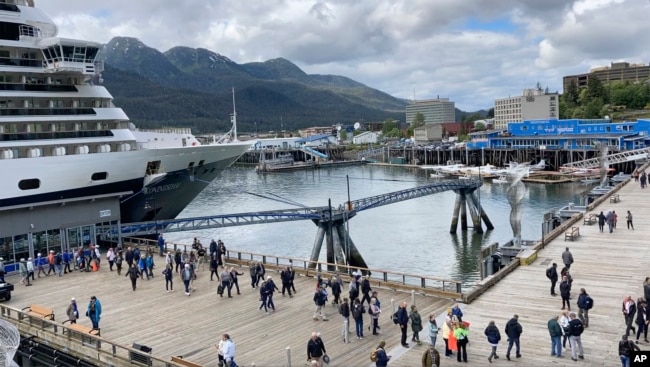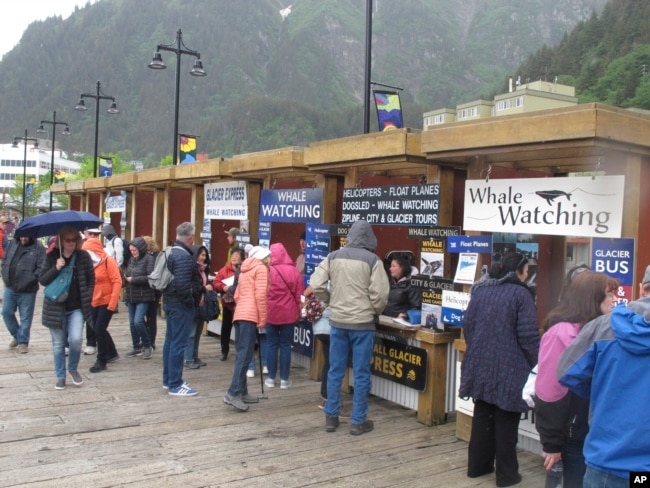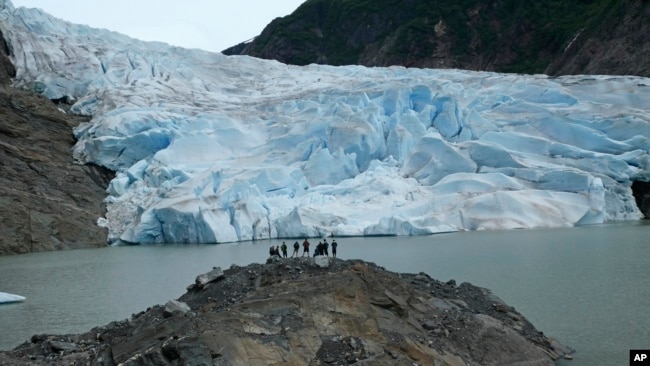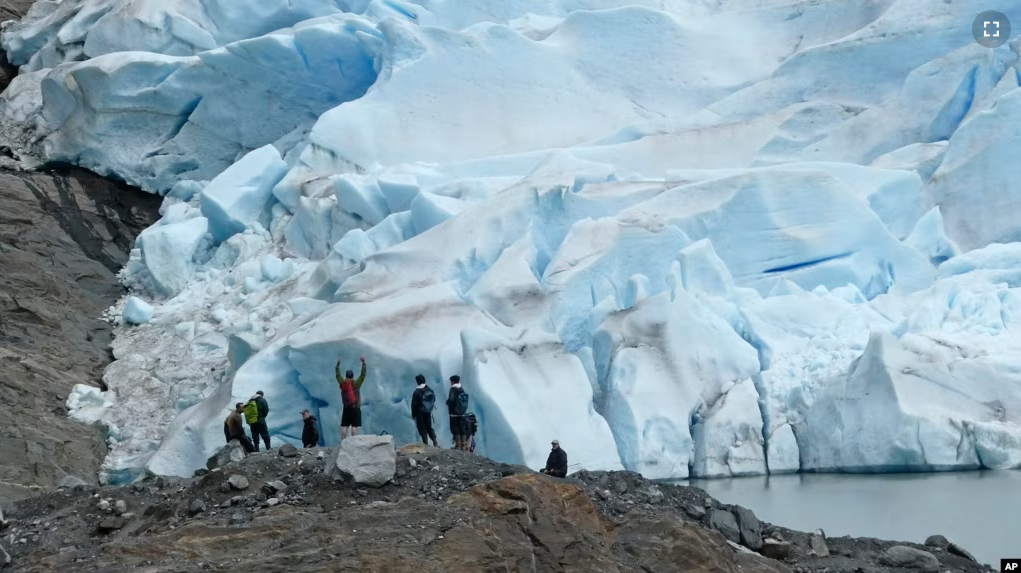Alaska’s Mendenhall glacier is about 20 minutes by car from Juneau, the state capital. It is one of the area’s most popular sites for tourists.
But climate change has caused the ice to melt and the glacier to retreat. That means it is losing more snow and ice than it gains. Researchers from the University of Alaska, Southeast say the Mendenhall glacier retreated about 800 meters between 2007 and 2021.
Mendenhall pours down from rocky land between mountains and into a lake filled with icebergs. Special signs mark the glacier’s retreat, showing where the ice once stood.
Experts estimate that by 2050, people will not be able to see the Mendenhall glacier from the visitor center that was built for it. That is already the case at some other glacier visitor centers in Alaska.
The melting glacier leads to questions for the Alaskan tourism industry. Does it make sense to build visitor centers for glaciers if they will not be useful in the future? How can tourism leaders help protect the glaciers for visitors to enjoy? And should there be limits on the number of tourists to the area?
Local leaders, tour companies, large boat operators and the U.S. National Park Service are all considering these questions.

Future of tourism
Tourism is an important part of Juneau’s economy. About 1.6 million cruise ship passengers are expected to stop in Juneau in 2023. That is the most ever in one year. On especially busy days, 20,000 people arrive each day to a city that has only 30,000 full-time residents.
Cruise ships are large boats with sleeping places that carry tourists from one place to another. Many cruises start a weeklong trip to Alaska in either Seattle, Washington, or Vancouver, Canada.
Manoj Pillai is a cruise ship worker from India. He recently got off his ship and went to see the Mendenhall glacier. “The glacier is so beautiful now,” he said. But he wondered what it must have looked like 10 or 20 years ago.
Jennifer Dumas lives in Washington, D.C. She knows what Alaska’s glaciers looked like in the past. She and her husband first visited the state and its glaciers in the 1990s. She told about seeing another glacier not too far from the Mendenhall glacier over 20 years ago. She went to Glacier Bay National Park and spent the night near the McBride glacier.
“Where we used to camp, where you could see the glacier. It has receded so far, you can’t see the glacier anymore. So we have pictures of us in front of the glacier, that you can no longer take those pictures.”

Visitor limits
People have many reasons to want to visit Alaska, and all the visitors help the state’s economy. But in Juneau, tourism officials are questioning whether the city and surrounding areas can deal with so many visitors each year.
Alexandra Pierce is the city’s tourism manager. She said she and others are discussing what a sustainable tourism industry should look like.
City leaders and major cruise lines have agreed to a daily five-ship limit for next year. As many as seven ships a day have arrived this year. But critics worry that may not do much to reduce tourist numbers because the ships themselves keep getting bigger. Some Juneau residents say they would like one day a week without ships.
Kerry Kirkpatrick has lived in Juneau for nearly 30 years. She said she can remember when the Mendenhall glacier was “long across the water and high above our heads.” She called the glacier a national treasure. She noted that the area may not be able to keep up with all the helicopters, cruise ships and visitors that want to see Mendenhall.
“There’s too many people on the planet wanting to do the same things,” Kirkpatrick said. “You don’t want to be the person who closes the door and says, you know, ‘I’m the last one in and you can’t come in.’ But we do have to have the ability to say, ‘No, no more.’”
I’m Dan Friedell.
Dan Friedell adapted this story for Learning English based on his own reporting and a report by the Associated Press.

____________________________________________________
Words in This Story
glacier –n. a very large area of ice that moves slowly down a slope or valley or over a wide area of land
tourist –n. a person from far away who goes to visit somewhere new for fun
iceberg –v. a a very large piece of ice floating in the ocean or another body of water
cruise –n. a vacation where people ride a boat that they sleep on from place to place
resident –n. a person who lives full-time in a place
sustainable –adj. able to continue for many years without causing damage
